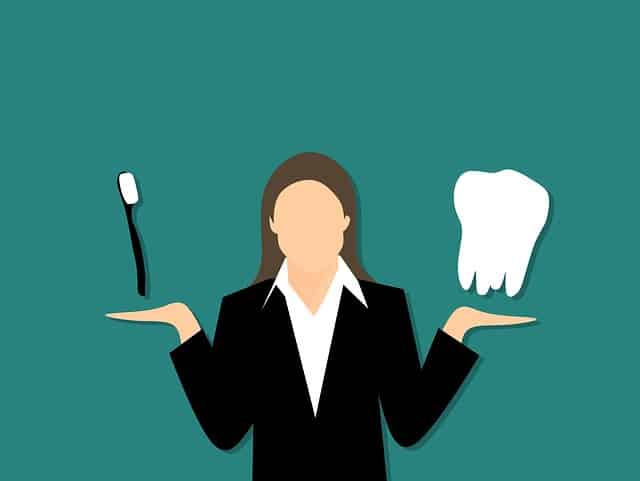If you think you know a lot about dentistry, you might’ve been told some myths that are untrue in your lifetime. When you have kids, it’s important to get the facts straight to help them take care of their oral health.
Keep reading to learn the most common myths about pediatric dentists and pediatric dentistry.
Tooth Decay and Cavities in Babies Don’t Matter
Pediatric dentists see a lot of parents that believe tooth decay and cavities in their babies don’t matter. Both of these infections can negatively impact the health of permanent teeth.
If primary teeth become decayed to the point that they need to be removed, the spacing in the mouth will be affected. Once the tooth gets removed, the space left must be maintained.
Without maintenance, the permanent tooth can grow into the wrong spot causing crooked and crowded teeth.
Habits that contribute to cavity development are solidified and formed at a young age. If your child continues these habits into their teens and even adulthood, their oral health will be at serious risk for dental health conditions.
Cavities in baby teeth and even permanent teeth cause pain that might be severe.
Pain can interfere with a baby’s ability to speak, eat, and drink. Continuous crying from tooth pain is also something you’ll have to deal with from young children.
The only way to relieve these issues is by visiting a pediatric dentist.
Kids Don’t Need to Visit the Dentist Until They Have Permanent Teeth
This myth couldn’t be further from the truth. The American Dental Association (ADA) recommends that all kids receive pediatric dentistry care for teeth cleaning and to evaluate dental health.
Different recommendations are made depending on the age of a child. To ensure your child maintains good oral hygiene, it’s important for parents to know how to help their kids take care of their mouths.
Although you can find a lot of information online about how to care for your child’s teeth, visiting a dentist is the best solution. A professional that specializes in pediatric dental health can provide you with tips based on your child’s health.
Kids Don’t Need to Brush or Floss Baby Teeth
If you take anything away from this pediatric dentist guide, it’s that baby teeth are important to oral health!
Not only should you be taking your kid to the dentist when their baby teeth start to come in, but you should be helping them brush their baby teeth.
Kids of all ages should be brushing their teeth. If you ignore this tip, cavities will cause damage to the child’s oral health, even if they don’t have their permanent teeth.
Additionally, kids should be flossing their teeth. When an individual or child doesn’t floss, most of the tooth’s surface doesn’t get cleaned. Flossing is necessary to prevent cavities from forming between the teeth.
Not flossing baby teeth can also put your child at risk for early gum disease.
Cavities Are Inevitable
If another parent has told you that cavities in children are inevitable, you’ve been given some bad information. Cavities are entirely preventable, even in young children.
Once your child starts developing teeth, make sure you are taking them to the dentist regularly for thorough cleaning and checkups. Doing this can help prevent cavities and tooth decay.
Remember that it’s never too early to have your child’s oral health checked out by a pediatric dentist. Ideally, you’ll want to schedule their first dental appointment soon after baby teeth appear.
Bringing them to the dentist before their first birthday is also common if you want to familiarize your child with the dentist’s office so that they don’t fear the experience later on.
Another common myth is that sugar causes all oral care problems in children. Although sugar might be the root issue in some cases, the leading cause of tooth decay is sugar that is left on the surface of the teeth.
Bacteria that live in the mouth can feed on the sugar and cause the enamel to erode.
Completing a daily oral health routine is essential for cavity prevention and getting rid of sugary bacteria in the mouth.
Light Bleeding Is Normal
For adults, light bleeding isn’t necessarily normal, but you don’t have to make a big deal about it. In most cases, the bleeding is caused by plaque and dirt breaking down on the gums.
Since children don’t normally experience cases of severe plaque, even light bleeding is not normal.
If kids deal with bleeding while they brush their teeth, it’s a sign that they are brushing too hard and hurting their gums. If you are the one brushing your child’s teeth and notice bleeding, ease up.
Adult Dentistry Is the Same as Pediatric Dentistry
Taking your child to the same dentist you go to isn’t a good idea unless they also specialize in pediatric dentistry. Some family dentist offices do both.
It’s always in your child’s best interest to visit a pediatric dentist until they reach a certain age.
Pediatric dentists specialize in working with kids. They take additional years to study the development stages and characteristics of children. They understand how dentistry affects the overall health of kids.
If you try going to a general dentist for your child’s oral health, they are likely to refer you to a pediatric dentist because they have more expertise and skills in working with kids.
Take Care of Your Child’s Oral Health: Visit Pediatric Dentists
Pediatric dentists can help you differentiate between myths and facts about your child’s oral health. Helping children develop good habits early on and taking them to the dentist to get comfortable are top tips to follow.
Use what you’ve learned in this guide to understand the truth about pediatric dentistry.
If you’re ready to schedule your child’s first dental appointment, contact us today!


Recent Comments